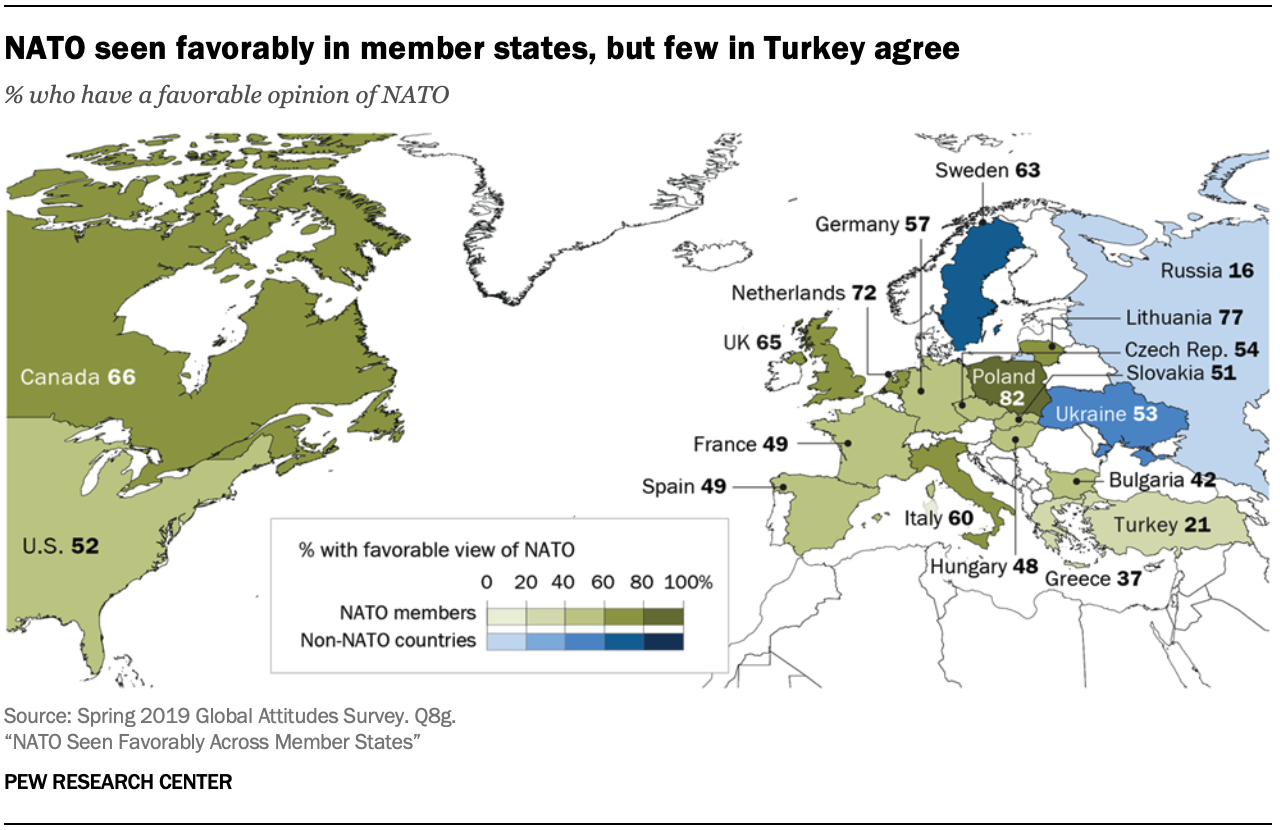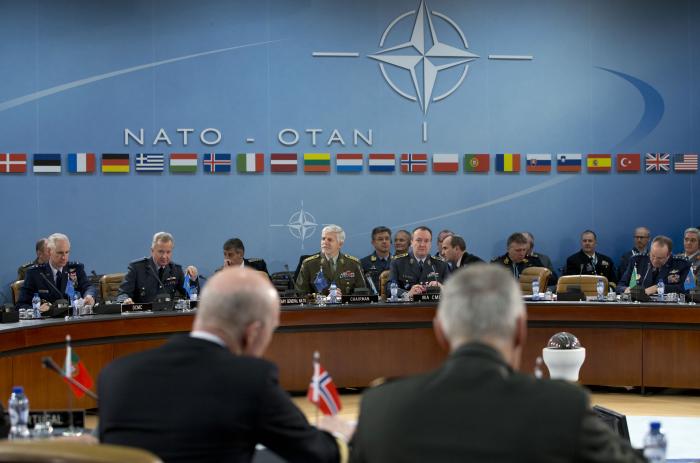Across many member nations, the North Atlantic Treaty Organization (NATO) is viewed favorably with Poland allocating the most support for the alliance, according to a recent survey published by Pew Research Center.
NATO, founded in 1952, was established as an international military alliance between 29 member countries from North America and Europe. Three member states of the alliance, United States, France, and the United Kingdom, hold one of the world’s largest stockpile of nuclear weapons.
In the new survey, researchers were driven to establish the amount of favorable opinion among NATO member states. They conducted telephone and face-to-face interviews of participants using guidance from Gallup, a US-based analytics firm, and Abt Associates, a data research firm.
Although certain key measures are grasped in accordance with alliance obligations, some member countries are not in agreement with few of them, especially on commitments like Article Five of the North Atlantic Treaty. Article 5 implicates and compels all member states to provide military aid if one is under armed conflict.

After gathering up all responses from the participants, researchers found favorable views and invidious disagreements spanning several years. For instance, in Eastern countries like Lithuania, Poland, and Ukraine, support for NATO surged considerably over the past decade. Meanwhile, countries like Bulgaria, France, Germany, and Russia, have exhibited resentment toward the alliance in recent times.
The source for the resentment could be correlated with ideological orientation. Based on the data, favorable views of the organization were impacted by ideological orientation, as those on the ideological left shared a less positive view of the alliance compared to those on the right.
Czech Republic and Spain also shared adverse discernment toward NATO’s measures of collective defense, the survey determined.
Moreover, in the results, the member state designated as attesting the most support for NATO was Poland, with positive ratings as high as 82%, compared to ratings of only 57% among the German population.
“These views have changed significantly over the past decade in some countries. In Ukraine, Russia, Slovakia and Germany, more say military force is sometimes necessary than said the same in 2007. And in Italy, Spain and the Czech Republic, publics have grown less inclined to agree,” the findings predicated.
“On the topic of territorial ambitions, when asked if there are parts of neighboring countries that really belong to their country, relatively few surveyed agree. However, among NATO member states, majorities in Hungary, Greece, Turkey and Bulgaria agree that parts of other countries belong to them.”
“NATO is generally seen in a positive light across publics within the alliance, despite lingering tensions between the leaders of individual member countries. But opinions of NATO and related issues vary widely across the countries surveyed, especially regarding the obligations of Article 5 of the 70-year-old Washington Treaty.”
Pew Research Center is a US-based nonpartisan think tank devoted to public opinion polling, demographic analysis, and social science research.


